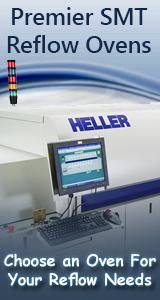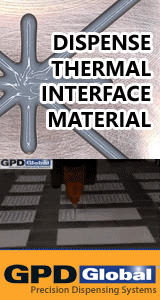Printed Circuit Board Assembly & PCB Design Forum
SMT electronics assembly manufacturing forum.
- SMTnet
- »
- Electronics Forum
- »
- Pb alloy reflow temperatures and component integrity
Pb alloy reflow temperatures and component integrity
![]() What does the reflow profile look like , the question I had...
- Aug 22, 2000
by
Mike Naddra
What does the reflow profile look like , the question I had...
- Aug 22, 2000
by
Mike Naddra
![]()
![]()
![]()
![]() If the thermal mass of the products is small, a tent-shaped...
- Aug 22, 2000
by
Dr. Ning-Cheng Lee
If the thermal mass of the products is small, a tent-shaped...
- Aug 22, 2000
by
Dr. Ning-Cheng Lee
![]()
![]()
Mike Naddra
- SMTnet
- »
- Electronics Forum
- »
- Pb alloy reflow temperatures and component integrity







